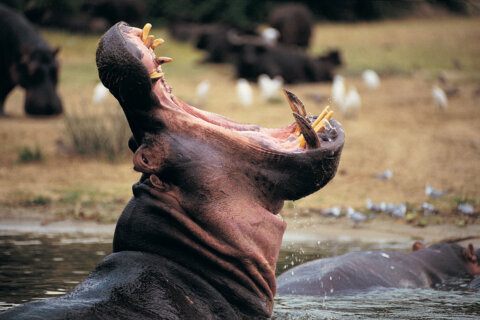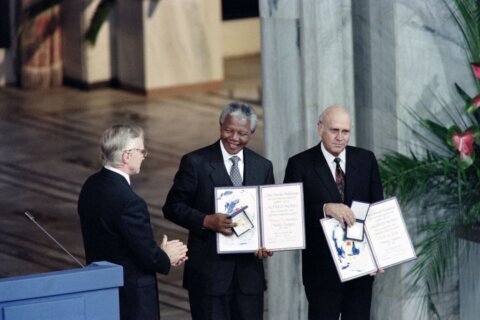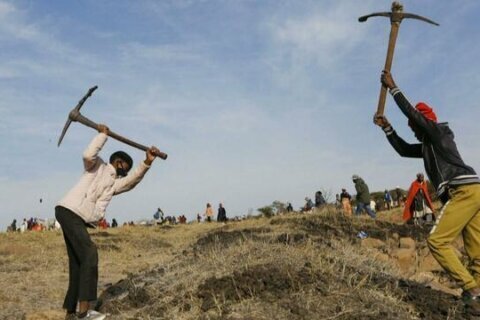FREETOWN, Sierra Leone (AP) — Seven-year-old Ali Mansaray must build a new life for himself after surviving the mudslides and flooding that killed nearly 500 people, including his parents, in Sierra Leone last week.
Now he is being looked after by his grandmother, who was spared because she was sleeping at a friend’s home the night of the Aug. 14 disaster.
“The boy’s mother and father are dead. Zainab and Idrisa gave birth to him, both of them are dead now, even our neighbors,” a grieving Emma Mansaray told The Associated Press. “Only God saved me because I did not sleep there.”
Ali is among hundreds of children who have lost one or both parents to the mudslides in this impoverished West African nation’s capital. Many children have no family members left alive. The children now line up for food rations at temporary shelters, with few hopes that any survivors will be found among the estimated 600 people missing.
Charities in Sierra Leone are grappling with how to help the hundreds of children who have lost parents. It is particularly difficult in a country where just two years ago a deadly Ebola outbreak decimated many families.
“It’s a real knock for the country so soon after Ebola. We didn’t expect to hear the ambulance sirens and see people in biohazard suits again in the streets of Freetown,” said the UNICEF spokesman in Sierra Leone, John James.
“Sierra Leone has a young population, and this will have an impact on the lives of children and adolescents for decades to come … People here are resilient, but we’ll be working hard to trace the extended families of orphaned children and ensure the successful integration of children.”
The government says some 4,000 children have been affected, and that psychosocial therapists are needed for them before schools reopen in September.
Aid groups such as World Hope International are providing help to prevent orphaned children from further trauma, including child traffickers seeking to exploit the situation in Freetown.
“We are seeing children who are separated from family members, children who have been orphans, they have lost all of their siblings and their parents and they are especially vulnerable right now,” said Haley Clark, trauma care and protection specialist for World Hope International.
“We saw cases like this during the Ebola time of where people will come in, they say they want to care for a child and so they take them into their home and then they exploit them. So we are seeing this as a situation that’s ripe for that kind of exploitation and we want to prevent it.”
UNICEF says about 15 percent of the 7,000 people registered as affected by the disaster are under the age of 5, while 40 percent are between the ages of 6 and 18.
As the government concentrates on supplying relief items to survivors and as construction companies build structures for the displaced, the U.N. agency said, while aid groups will help trace families in the upcoming weeks to determine if the young children left alone might still have living relatives.
___
Petesch reported from Dakar, Senegal.
Copyright © 2026 The Associated Press. All rights reserved. This material may not be published, broadcast, written or redistributed.







